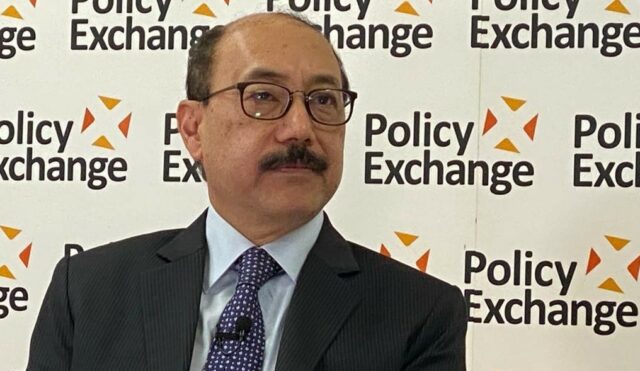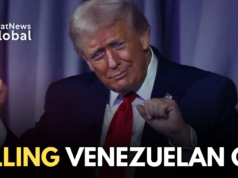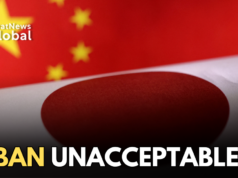NEW DELHI: “For us, and for many others, the shift in the economic trajectory from the Atlantic to the Indo-Pacific has been hugely consequential,” with that India’s Foreign Secretary Harsh Vardhan Shringla laid out for his hosts in London, the idea of a “rules-based international order achievable only with a rules-based Indo-Pacific.”
He told the Policy Exchange think-tank that “the interconnectedness of the Indo-Pacific is finally coming into full play,” noting that “A motivating factor is the region’s emergence as a driver of international trade and well-being. The Indo-Pacific Ocean system carries an estimated 65 per cent of world trade and contributes 60 per cent of global GDP. Ninety per cent of India’s international trade travels on its waters.”
He underscored India’s efforts “to strengthen security and freedom of navigation in the Indo-Pacific by becoming a net security provider” and alluded to India’s UN peacekeeping missions and anti-piracy operations in the Gulf of Aden. “Sharing what we can, in equipment, training and exercises, we have built relationships with partner countries across the region.”
“In the past six years, India has provided coastal surveillance radar systems to half a dozen nations–Mauritius, Seychelles, Sri Lanka, Maldives, Myanmar and Bangladesh. All of these countries also use Indian patrol boats, as do Mozambique and Tanzania.” India has also stepped up defence training programmes for many countries of the Indo-Pacific. “Mobile training teams have been deputed to 11 countries–from Vietnam to South Africa, as well as Sri Lanka, Bangladesh and Myanmar in our immediate neighbourhood,” Shringla said.
He was hopeful that like France, Germany and the Netherlands, the UK too would come on board with its own vision of the region and that it would be in consonance with the one enunciated by New Delhi. “The UK, we hope and expect, will be next on the list, and too will finalise its Indo-Pacific strategy soon. Given this country’s characteristic wisdom and prodigious institutional memory, we hope too that the UK’s strategy will approximate India’s own and long-standing Indo-Pacific vision,” Shringla said.
Targeting China, Shringla said, “An Indo-Pacific guided by norms and governed by rules, with freedom of navigation, open connectivity, and respect for the territorial integrity and sovereignty of all states, is an article of faith for India.”
He made an oblique reference to the debt-trap countries often find themselves in when projects are executed by China. “India has also promoted and contributed to infrastructure, connectivity, economic projects and supply chains in the region, always prioritising the needs of the host community and the ethic of equity, environmental sustainability and social viability.”
He referred to Germany’s recently unveiled vision of the Indo-Pacific, “I was struck by the prescription that, When developing connectivity, it is important to facilitate fair competition, to avoid over-indebtedness on the part of the recipient countries and to ensure transparency and sustainability.’ These are exactly the principles India has been upholding and I am glad others are sharing our prism.”
Professional newshound, have navigated through typewriters, computers and mobile phones during my over three-decade-long career working in some of India's finest newsrooms (The Times of India, Financial Express). Pakistan, Nepal, Bangladesh and Bhutan are my focus, also Sri Lanka (when boss permits). Age and arthritis (that's a joke) have not dimmed the thrill of chasing a story. Loves music, animals and pasta.





